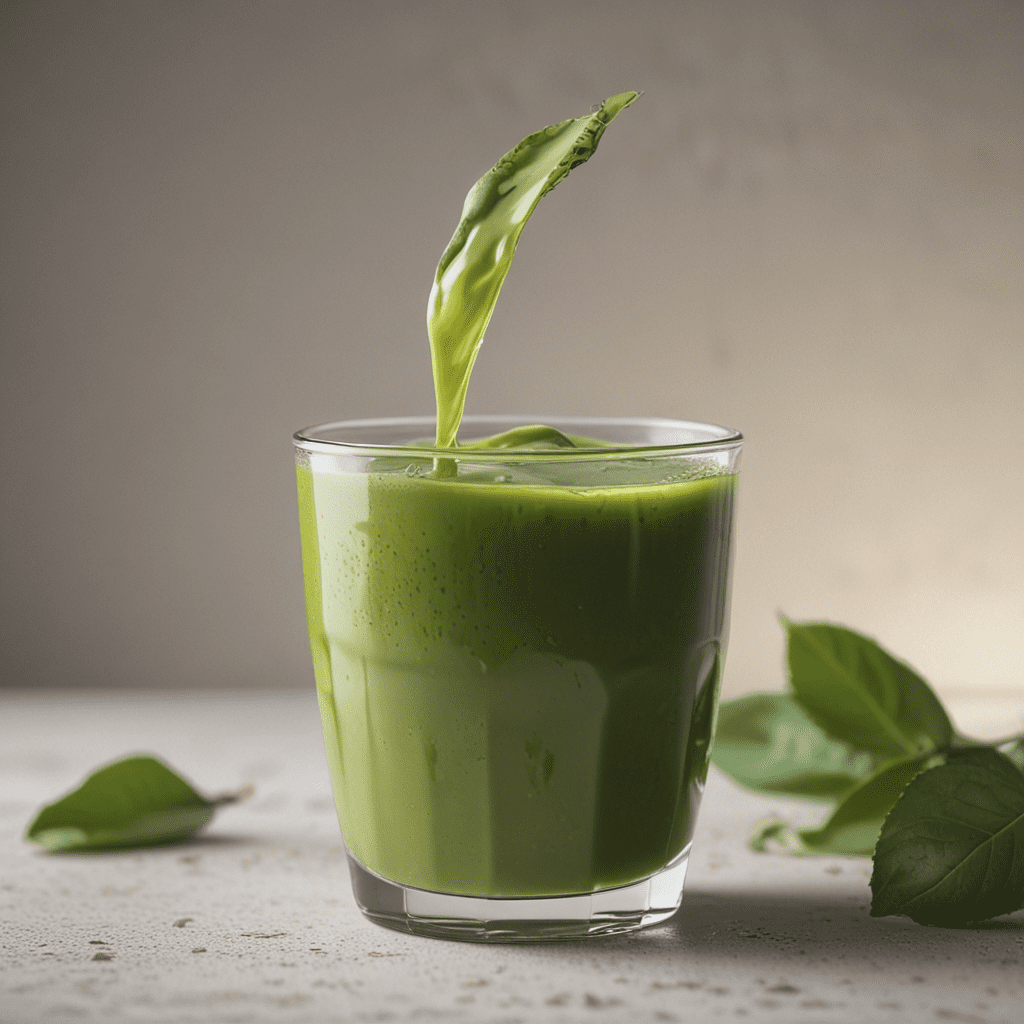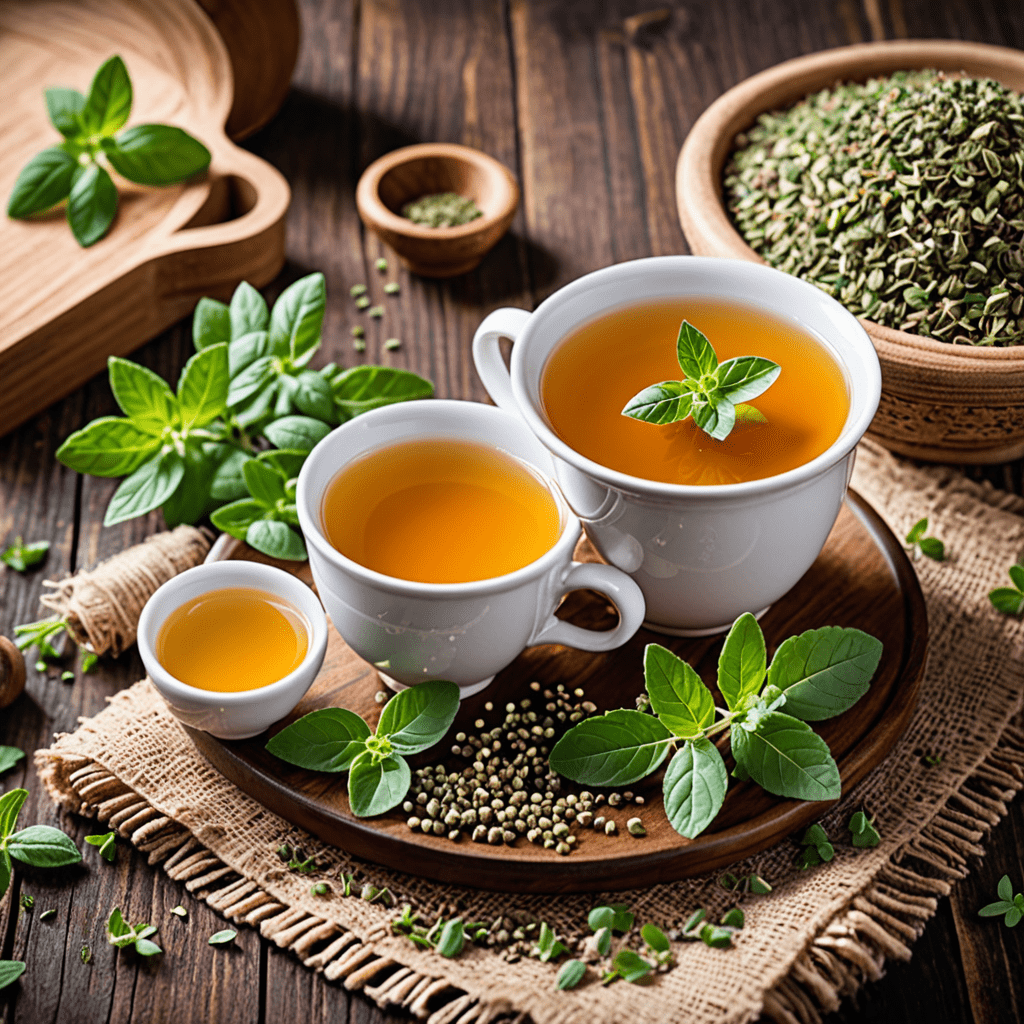
Matcha and Liver Health: Green Tea’s Support for Detoxifying
I. Matcha: A Superfood for Liver Health
Matcha, a finely ground green tea powder, has gained popularity as a superfood due to its exceptional nutritional value. It is particularly renowned for its liver-supporting properties, which contribute to detoxification and overall liver health. Matcha contains a potent antioxidant called EGCG (epigallocatechin gallate), which has been associated with various health benefits, including protecting the liver from damage.
II. Benefits of Matcha for the Liver
Matcha's benefits for the liver are multifaceted. It helps protect against liver damage by reducing oxidative stress, inhibiting inflammation, and promoting detoxification processes. Studies have shown that EGCG, along with other antioxidants in matcha, can prevent liver fibrosis, a condition characterized by scar tissue formation in the liver. Matcha also aids in fat metabolism, reducing the risk of fatty liver disease, a prevalent condition that can lead to liver damage.
III. Liver Detoxification and Matcha
Detoxification is an essential process in the liver's function of filtering and removing harmful substances from the body. Matcha supports liver detoxification by increasing the production of enzymes that break down toxins. EGCG has been found to enhance the activity of these detoxification enzymes, facilitating the elimination of toxic compounds and protecting liver cells from damage.
IV. Matcha as an Antioxidant
Matcha's exceptional antioxidant content plays a crucial role in protecting liver cells from damage caused by free radicals. Free radicals are unstable molecules that can lead to oxidative stress, contributing to liver disease. EGCG, the primary antioxidant in matcha, neutralizes free radicals, preventing them from harming liver cells and preserving liver function.
V. Matcha’s Anti-Inflammatory Properties
Inflammation is a common response to liver injury or disease. Matcha possesses potent anti-inflammatory properties that help reduce liver inflammation and promote healing. EGCG has been shown to inhibit the production of inflammatory cytokines, thereby mitigating liver inflammation and supporting liver regeneration.
VI. Matcha’s Role in Fat Metabolism
Excessive fat accumulation in the liver can lead to fatty liver disease. Matcha aids in fat metabolism by increasing the activity of enzymes involved in breaking down fats. This helps reduce the risk of fat buildup in the liver, promoting liver health and preventing the development of fatty liver disease.
VII. Scientific Evidence for Matcha’s Liver Benefits
Numerous scientific studies have demonstrated the liver-protective effects of matcha. One study found that EGCG significantly reduced liver damage in rats exposed to toxins. Another study showed that matcha consumption improved liver function in individuals with non-alcoholic fatty liver disease. These findings support the role of matcha in maintaining liver health and preventing liver disease.
VIII. Potential Risks and Precautions
While matcha is generally safe for most people, individuals with certain conditions should exercise caution. Excessive matcha consumption may lead to caffeine sensitivity, anxiety, or sleep disturbances. Individuals with liver disease should consult with their healthcare provider before consuming matcha due to potential interactions with medications.
IX. Incorporating Matcha into Your Diet
Matcha can be incorporated into your diet in various ways. It can be whisked with hot water to prepare a traditional matcha tea. You can also add matcha powder to smoothies, baked goods, or even culinary dishes. Start with a small amount and gradually increase the dosage as tolerated.
X. Conclusion: Matcha as a Supporter of Liver Detoxification
Matcha, brimming with antioxidants and liver-protective compounds, serves as a potent ally for maintaining liver health and supporting detoxification processes. Its ability to reduce oxidative stress, fight inflammation, and promote fat metabolism makes it an invaluable addition to a healthy diet. While scientific evidence continues to accumulate, incorporating matcha into your routine may offer significant benefits for your liver's well-being.
FAQ
Q: How many cups of matcha tea should I drink daily?
A: Moderate consumption of 1-2 cups of matcha tea per day is recommended.
Q: Can I take matcha supplements instead of drinking tea?
A: While matcha supplements may provide some benefits, consuming matcha tea offers a more comprehensive range of nutrients and antioxidants.
Q: Is matcha safe for pregnant or breastfeeding women?
A: It's advisable to consult with your healthcare provider before consuming matcha if you're pregnant or breastfeeding.
Q: Can matcha interact with any medications?
A: Matcha may interact with certain medications, especially those metabolized by the liver. Individuals with liver disease or taking medications should consult with their healthcare provider.

